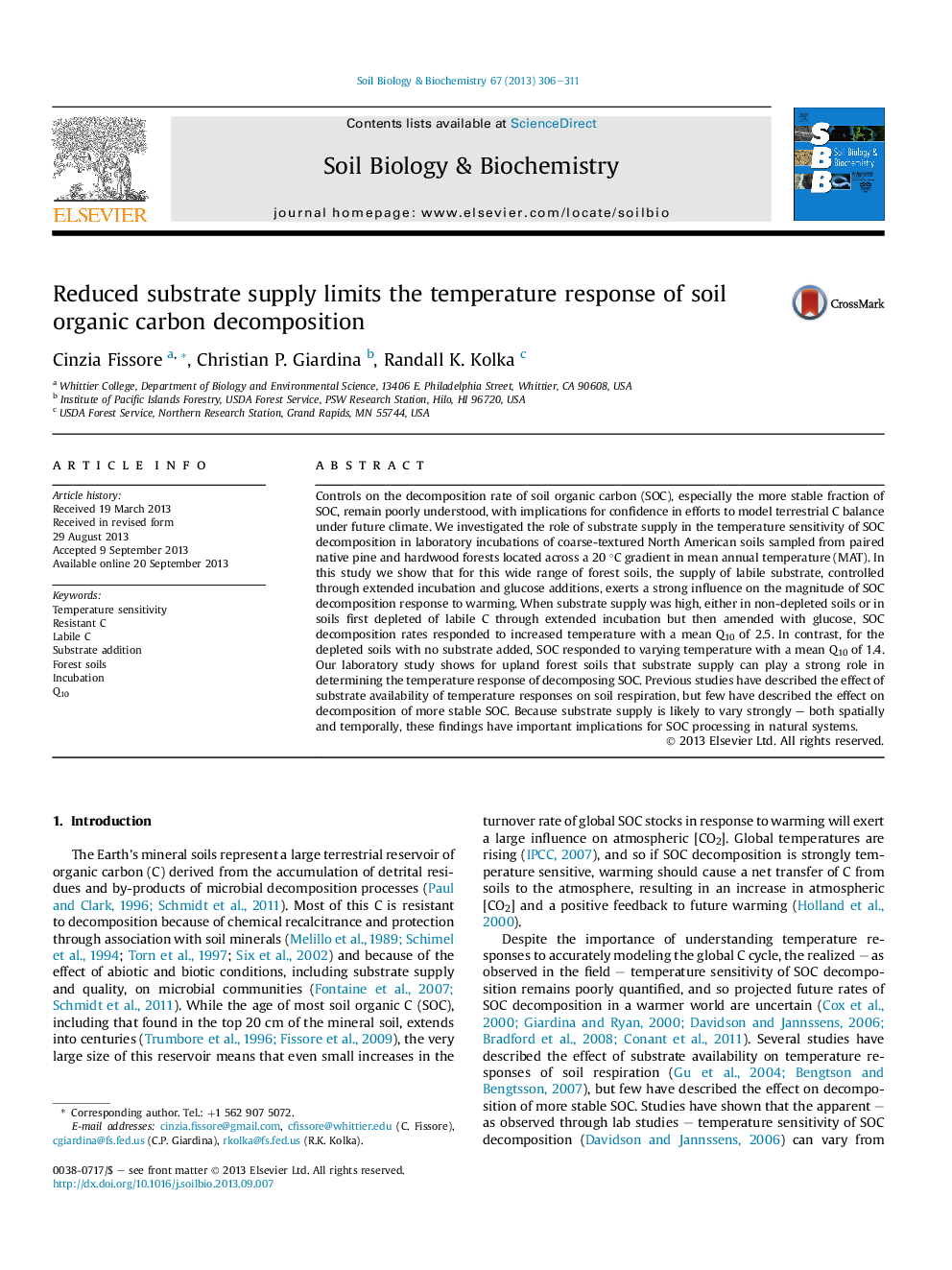| Article ID | Journal | Published Year | Pages | File Type |
|---|---|---|---|---|
| 8365173 | Soil Biology and Biochemistry | 2013 | 6 Pages |
Abstract
Controls on the decomposition rate of soil organic carbon (SOC), especially the more stable fraction of SOC, remain poorly understood, with implications for confidence in efforts to model terrestrial C balance under future climate. We investigated the role of substrate supply in the temperature sensitivity of SOC decomposition in laboratory incubations of coarse-textured North American soils sampled from paired native pine and hardwood forests located across a 20 °C gradient in mean annual temperature (MAT). In this study we show that for this wide range of forest soils, the supply of labile substrate, controlled through extended incubation and glucose additions, exerts a strong influence on the magnitude of SOC decomposition response to warming. When substrate supply was high, either in non-depleted soils or in soils first depleted of labile C through extended incubation but then amended with glucose, SOC decomposition rates responded to increased temperature with a mean Q10 of 2.5. In contrast, for the depleted soils with no substrate added, SOC responded to varying temperature with a mean Q10 of 1.4. Our laboratory study shows for upland forest soils that substrate supply can play a strong role in determining the temperature response of decomposing SOC. Previous studies have described the effect of substrate availability of temperature responses on soil respiration, but few have described the effect on decomposition of more stable SOC. Because substrate supply is likely to vary strongly - both spatially and temporally, these findings have important implications for SOC processing in natural systems.
Related Topics
Life Sciences
Agricultural and Biological Sciences
Soil Science
Authors
Cinzia Fissore, Christian P. Giardina, Randall K. Kolka,
